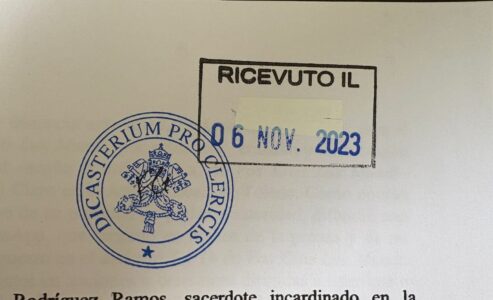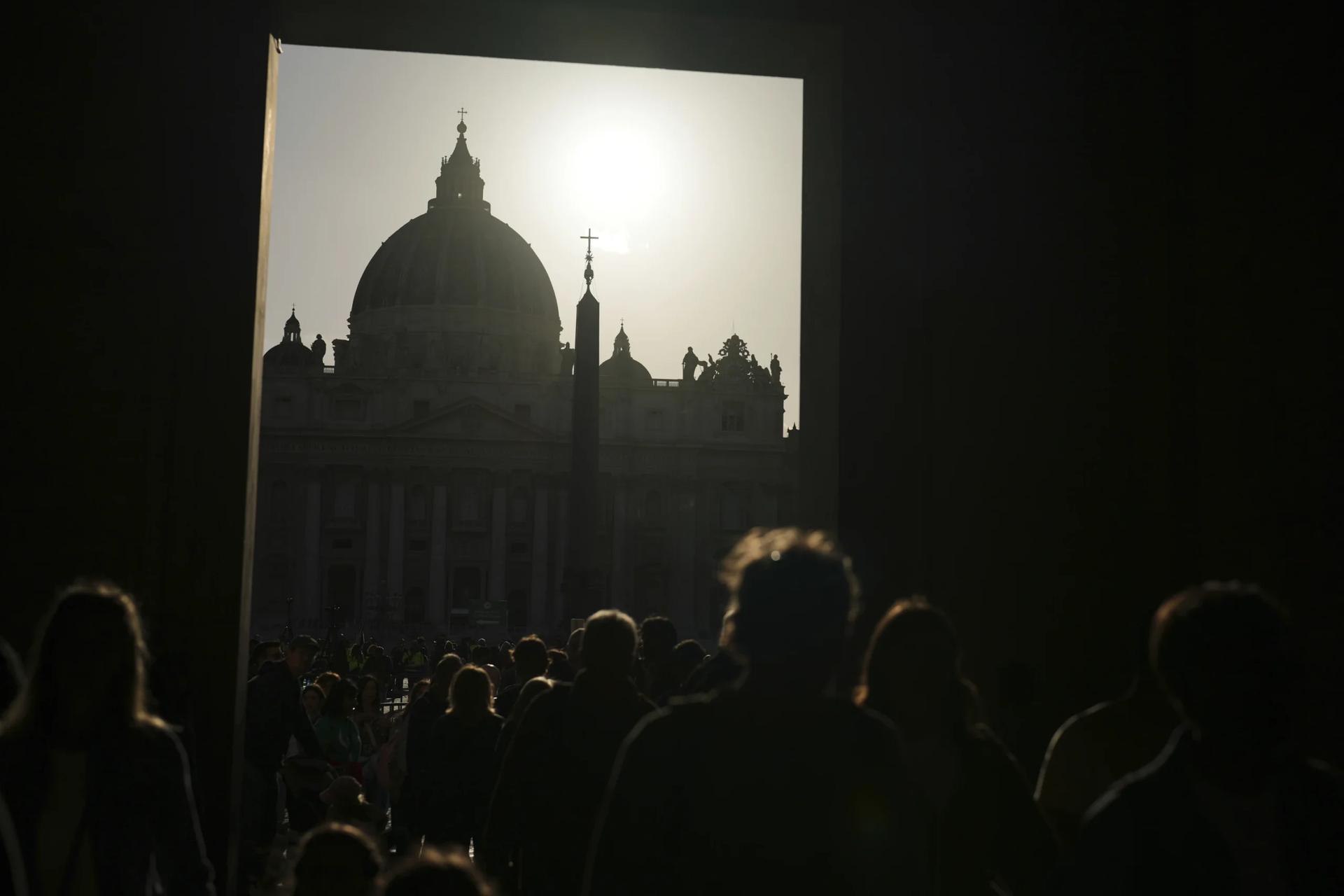ROME – A high-ranking priest in the Archdiocese of Toledo in Spain arrested early Monday on charges of drug possession had previously been denounced in the Vatican for the defamation of a victim of sexual abuse, but no action was taken.
Father Carlos Loriente, a canon serving in the cathedral of Toledo, has been precautionarily removed from his priestly duties after he was arrested in Torremolinos in the early hours of Monday, Sept. 22, in possession of a significant quantity of pink cocaine, a synthetic drug known as tusi.
He had been vacationing on the Costa del Sol, in an area notorious for gay sex trafficking, when he was caught on the street with a dozen packets of the pink cocaine. A subsequent search of Loriente’s residence uncovered more drugs and several sex toys.
Loriente has been charged with a crime against public health, but was released until he is summoned to court again to continue his process.
In a communique published Sept. 23, the Archdiocese of Toledo, without offering Loriente’s identity, and said it “deeply regrets the events that led to the arrest” and condemns “any criminal conduct that the priest may have committed.”
They voiced their willingness to cooperate with authorities and said they have removed Loriente from ministry and launched their own inquiry. They also asked forgiveness “for any moral damages that may be caused by the alleged crimes committed by a priest of the archdiocese.”
Loriente until Sept. 15 had been episcopal vicar for clergy for the Archdiocese of Toledo. Though not initially identified as the priest who had been arrested, Loriente was later identified by several Spanish-language media outlets as the priest involved in the incident.
In addition to his current legal woes, Loriente was the subject of a formal canonical complaint in the Vatican’s Dicastery for Clergy in November 2023 by a victim of clerical abuse whose civil and canonical cases are still pending, and who accused Loriente of defamation in a letter to archdiocesan clergy that was eventually leaked in the media.
The victim, identified as “Carlos” in this article, claims to have been sexually abused by his spiritual director, Father Pedro Francisco Rodríguez Ramos, in the early 2000s while attending the minor seminary Santo Tomás de Villanueva in Toledo.
RELATED: A case study in how the Vatican’s abuse reform efforts have failed
He first told of the abuse to the then-archbishop of Toledo, Braulio Rodríguez Plaza, in 2009, but received no follow up or guidance on potential next steps. His mother met with Rodríguez Plaza again in March 2010, but no actions were taken, and no restrictions were placed on Rodríguez Ramos until 2021, after Carlos’s case went public in the media.
After years of inaction by the church and seeing his alleged abuser continue to receive assignments and interact with minors, Carlos in 2016 filed a civil complaint against Rodríguez Ramos, who was found guilty in October 2023.
However, the priest was acquitted on appeal on grounds that an error in the preliminary investigation harmed his defense, but his guilt over the abuse allegations was not questioned. Carlos filed an appeal to the acquittal, which is still pending, and the Supreme Court prosecutor’s office has recommended that the original guilty verdict be upheld.
After Carlos’s complaints were made in 2010, Rodríguez Ramos continued to receive formal appointments and traveled on a mission trip to Moyobamba in Peru in 2020, where he was in contact with minors.
Frustrated with the church’s inaction, Carlos went to the media in 2021, prompting the Archdiocese of Toledo to finally impose restrictions on Rodríguez Ramos and open a canonical inquiry.
A canonical process was finally opened into his case last fall, however, it was opened in the ecclesiastical province of Toledo, where Carlos’s alleged abuser is from.
RELATED: Toledo abuse case in Spain further illustrates snags in seeking justice
Carlos, who was in regular personal contact with Pope Francis about his case, says that throughout the now 15-year ordeal, the clergy and hierarchy of the Toledo archdiocese, including Loriente, have remained loyal to Rodríguez Ramos, and have done little to help him as a victim, acting only when prompted by public pressure.
During the civil trial against Rodríguez Ramos, Loriente sent a letter to diocesan clergy via WhatsApp, which Crux has seen, defending Rodríguez Ramos, who was a personal friend, criticizing Carlos, and hitting back against the media.
In the letter, Loriente said it was his “moral obligation” to set the record straight regarding the news of Rodríguez Ramos’s verdict and Carlos’s allegations of coverup by several officials of the Toledo archdiocese, despite Carlos’s possession of recorded evidence in which Rodriguez Ramos affirms that the Archbishop of Toledo knew about his accusations since 2010.
Among other things, Loriente pointed to various media outlets covering the case and lamenting that it took so long to get Rodríguez Ramos officially removed from ministry, arguing that “There is no automatic connection between a complaint of this type and the removal of a priest from his ministry.”
Loriente also referred to what he said was a “lack of plausibility” regarding Carlos’s claims and asserted his own “subjective conviction of Pedro [Rodríguez Ramos]’s innocence.”
To this end, he said, “I don’t think I have to extend myself much in expressing the goodness of heart that many of us have known in this priest” and voiced his conviction that Rodríguez Ramos has “a profile that is not compatible at all with an abuser.”
Loriente also argued that the need to ensure a safe environment should not “lead us to judge, with today’s sensitivity, issues from almost two decades ago.”
“The infamous media pressure that has been exerted on the investigating judge and the trial court is unlawful and could even have criminal overtones,” he said.
He claimed that Rodríguez Ramos had not gone to Peru in 2020 where he was working with minors, despite the fact that pictures from the Peru seminary’s website showing Rodríguez Ramos there with minors during that trip were circulating online and had been reprinted in Spanish media outlets.
Additionally, Loriente said the Archdiocese of Toledo was within its rights to take “appropriate legal action” in regard to what he said were Carlos’s false and “slanderous” claims.
Loriente said Carlos “rejected” efforts of assistance by the Toledo archdiocese’s Commission for the Protection of Minors and accused Carlos of using his contact with the commission in court “as an indication of some kind of acknowledgement on our part of the facts, which is absolutely false.”
Carlos has repeatedly argued, in the media and in his Vatican complaints, that the Archdiocese of Toledo did, in fact, know about his claims prior to 2021, and he is awaiting a final canonical verdict.
In closing, Loriente in his letter said he would refrain from saying more on the matter, as he was “aware that these somewhat bold words can be misused by the enemies of the Church, who will never think that what we do is enough,” and he asked that his letter not be shared with anyone else.
The letter was eventually leaked to the media, causing distress for Carlos and his family. In response, Carlos filed a complaint against Loriente according to the norms of Vos estis lux mundi – Pope Francis’s norms for the handling to clerical abuse cases – with the Vatican’s Dicastery for Clergy in November 2016.

This complaint, dated as being received Nov. 6, 2023, and which Crux has seen, was addressed to Cardinal Lazzaro You Heung-Sik of South Korea, who since 2021 has served as prefect of the Dicastery for Clergy.
In the complaint, Carlos accused ecclesiastical authorities in Toledo of “continuing to publicly calumniate me in different communiques…, treating me as a liar,” which he argued is a direct violation of article 5 of Vos Estis, which states that, “The ecclesiastical Authorities shall commit themselves to ensuring that those who state that they have been harmed, together with their families, are to be treated with dignity and respect.”
Carlos said his treatment by archdiocesan priests and authorities also violated the Vos Estis provision that “The legitimate protection of the good name and the privacy of all persons involved, as well as the confidentiality of their personal data, must be ensured.”
To this end, he made a direct complaint against Loriente to You Heung-Sik “for slander, issuing and distributing falsehoods, and thus abusing his power and authority” as the archdiocese’s Vicar for Clergy.
Referring to the letter Loriente had sent to archdiocesan via WhatsApp, Carlos said Loriente “took advantage of his position of power and authority, sharing a letter in a massive way to the clergy, through WhatsApp, which ended up in the hands of the media and those around me.”
These actions, Carlos said, were also a direct violation of article one of Vos Estis, which prohibits “conduct carried out by the subjects referred to in art. 6, consisting of actions or omissions intended to interfere with or avoid civil investigations or canonical investigations, whether administrative or penal.”
Carlos said the purpose of his canonical complaint against Loriente was “to avoid that any other minor seminarian like me, dreaming of a vocation to the priesthood, is not robbed of their faith, or their hope and love of the Church, due to negligent bishops who can cause irreparable damage to victims, as is my case.”
To date, Carlos has not had a response from You Heung-Sik or anyone in the Dicastery for Clergy, nor the Archdiocese of Toledo, regarding the complaint about Loriente, who is now under police investigation, nor for any of the other complaints he has made in various Vatican dicasteries for his alleged abuse and the coverup of ecclesiastical authorities.
Follow Elise Ann Allen on X: @eliseannallen











